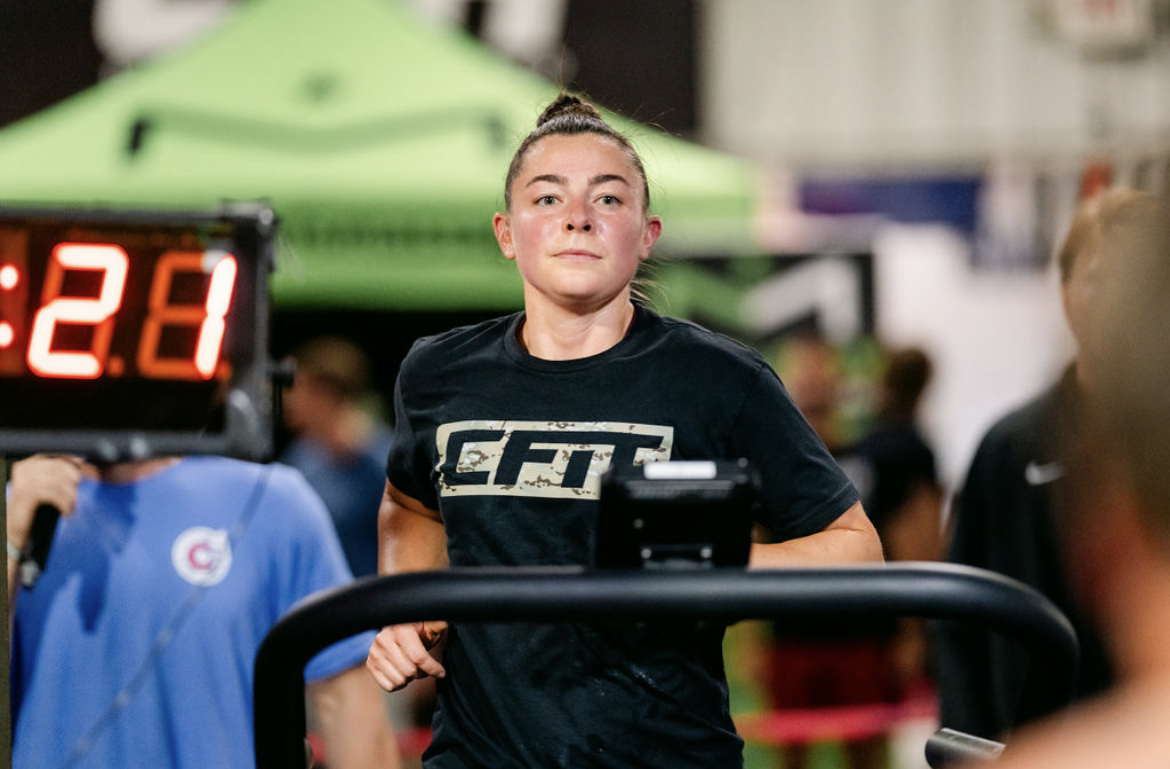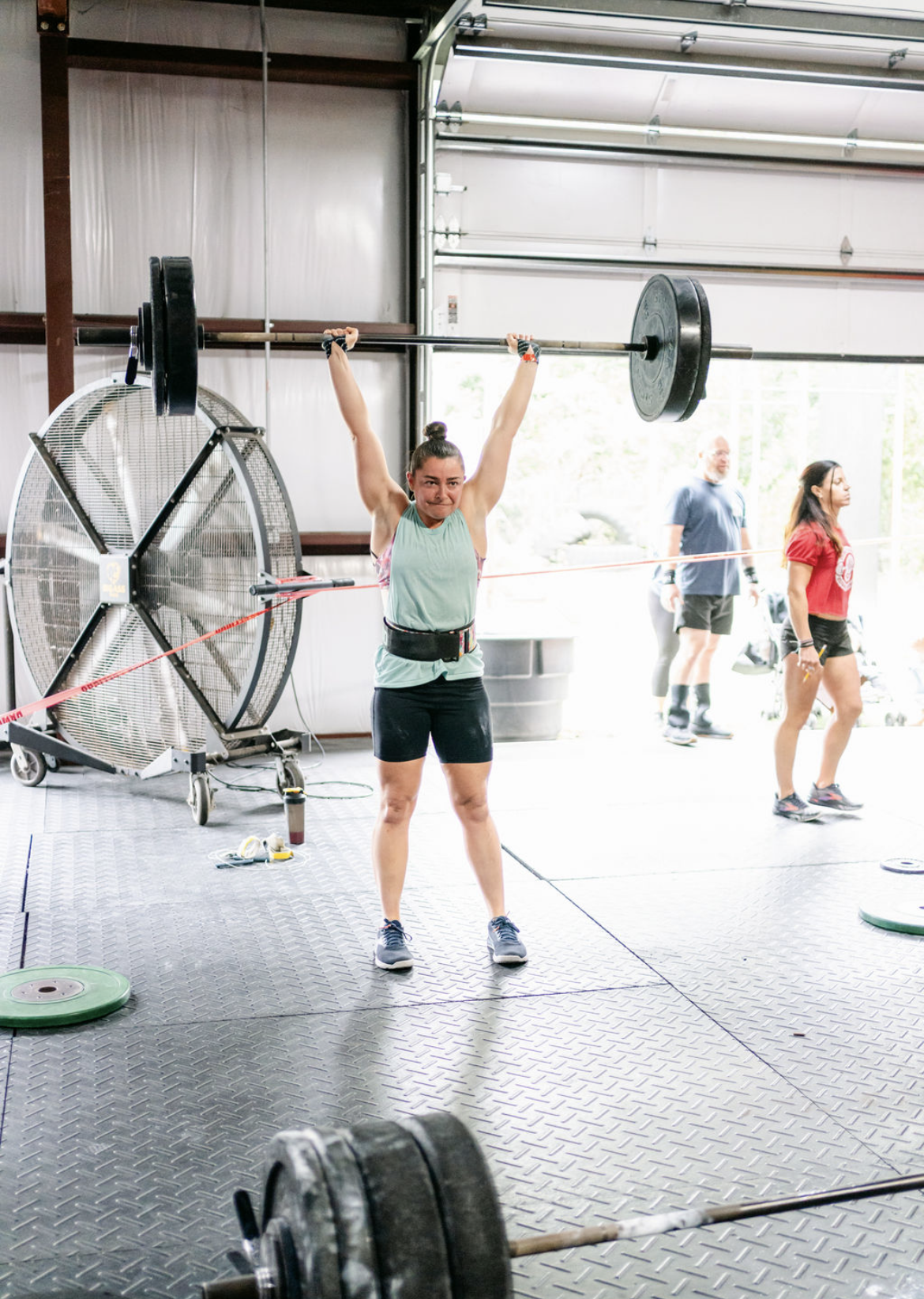Triumph Over Imposter Syndrome in Athletes
“This is going to be interesting” I said as I tumbled over the handstand walking ramp for the fifth time. “I know I’m not very warm right now, but I haven’t tried to walk over one of these in probably a year.” As I practiced the handstand walking obstacle course the day prior to the Crash Crescendo competition in early April 2024.
I was at the competition to have fun and show myself how much better I have gotten at CrossFit over the past year. I knew going into it we were up against some fierce competition and we weren’t going to be anywhere near podium placement. However, I was worried about some of the movements. In that first practice session on Friday night, I was worried about what other athletes we were competing against were going to think of me if I couldn’t do X, Y or Z. Plus, it was being streamed live on YouTube.
I try not to care what other people think, but it’s human nature to compare ourselves to others and in that moment I just didn’t feel like I belonged there. I felt like a fraud, unfit and “not ready” to take this competition on.
Thankfully, I set expectations going into this and I was able to readjust my thinking that night. I was going into competition day ready to give my all and just show myself how much better I had gotten.
However, I know I’m not alone in these feelings.
Imposter syndrome, or imposter phenomenon, runs rampant in high achieving individuals. We see such fierce, high level competition that we think we need to be absolutely perfect in order to be anywhere close to the top. When we don’t think that our performance is perfect enough, we think ourselves frauds and we often feel shame at where our performance ends up.
If we don’t look a certain way.
If we don’t lift a certain weight.
Execute a skill with utmost precision.
We end up wanting and trying to do it over and over and over again, often times to the point of burnout.
Imposter Phenomenon is exhausting and it can lead to things like increase stress, anxiety and eventually burnout.
No one gets into the sport we love to get burnt out and never want to do it again.
We get into the sport because we love it. Something about it draws us to it and we have such passion for it that it continually brings us back.
When we start, we want to get better; it’s fun seeing progress. At some point in many athletes that stops and the immense internal and external pressure sets in.
According to Thompson, Davis, & Davidson, (1998) athletes that achieve success often feel the success is undeserved and this may cause distress and maladaptive behaviors. There are also levels of feeling like you will be “found out” and exposed as a fraud for their incompetence (Peteet, Montgomery, & Weekes (2015) and Sims (2020)).
Interestingly, Clance’s (1985) imposter syndrome theory outlines a cycle with 6 potential attributes
“The need to be special or be the very best”
“Superman/superwoman aspects”
“Fear of failure”
“Denial of Competence”
“Discounting Praise”
“Fear and Guilt about success”
There are many ways to mentally start addressing all 6 of these aspects of Imposter Phenomenon and I don’t think there is a particular order you must go in when using the skills. However, it may be imperative to start to gain awareness around which ones or one you may be experiencing the most. That way it may be easier to identify thoughts that go along with that theme and stop/change them more quickly.
Winning Skills to Triumph Over Imposter Syndrome
Start shifting thoughts from Fixed to Growth mindset thoughts - athletes may contribute success to luck, external circumstances or not related to their own effort/behavior. This falls within a fixed mindset where one believes that their effort and behavior have no impact on the result they achieve. “I’m born this way”, “it just is what it is”. By approaching with a growth mindset it may be easier to understand what was the athlete’s doing from as a result of the things that are within their control (like effort and behavior).
Using critical data based evidence to overcome the confirmation bias - athlete’s with perfectionistic thinking and experiencing the imposter phenomenon often focus on the thoughts/evidence that support their perceived fraudulence. This may look like watching a training video and only seeing lack of hip extension in a snatch or only looking at their placement in a competition workout as a sign they aren’t good enough. By trying to find cold, hard facts for and against a belief can help an athlete start to see all the missing evidence they refused to see before. This might be a useful tool to use with someone else (who can play devil’s advocate or take a different perspective than the athlete) to start out and get the athlete out of that one path of thinking.
Start finding 3-5 pieces of evidence around what went well - human’s have a natural tendency towards a negativity bias. We love to see all the negatives in life because in the past it could have meant life or death. However, today it just means severe anxiety. By searching for things that went well, we are forcing ourself to look for something different/something good about our training. You may have lacked hip extension in your snatch, but you were still very snappy/fast to get under the bar. This will help you stop seeing one thing and not the other.
These are just a few skills to start with in overcoming the imposter phenomenon, however, all 3 pack PUNCH. Start doing at least one of these, consistently, for a few weeks and you will start to notice a difference in your thinking and how you feel.
I would personally start with number 3. I think it’s the lowest barrier to entry and will often have the least mental resistance.
Want to learn more about overcoming imposter syndrome, self-doubt and increase confidence in your ability?
Join my monthly mental skills workshop, where we tackle one mental skill every month - gain a deeper understanding of the skill and how to apply it to your life. Plus, you’ll get access to added activities in the member portal that will help you, throughout the month, practice the skill.



